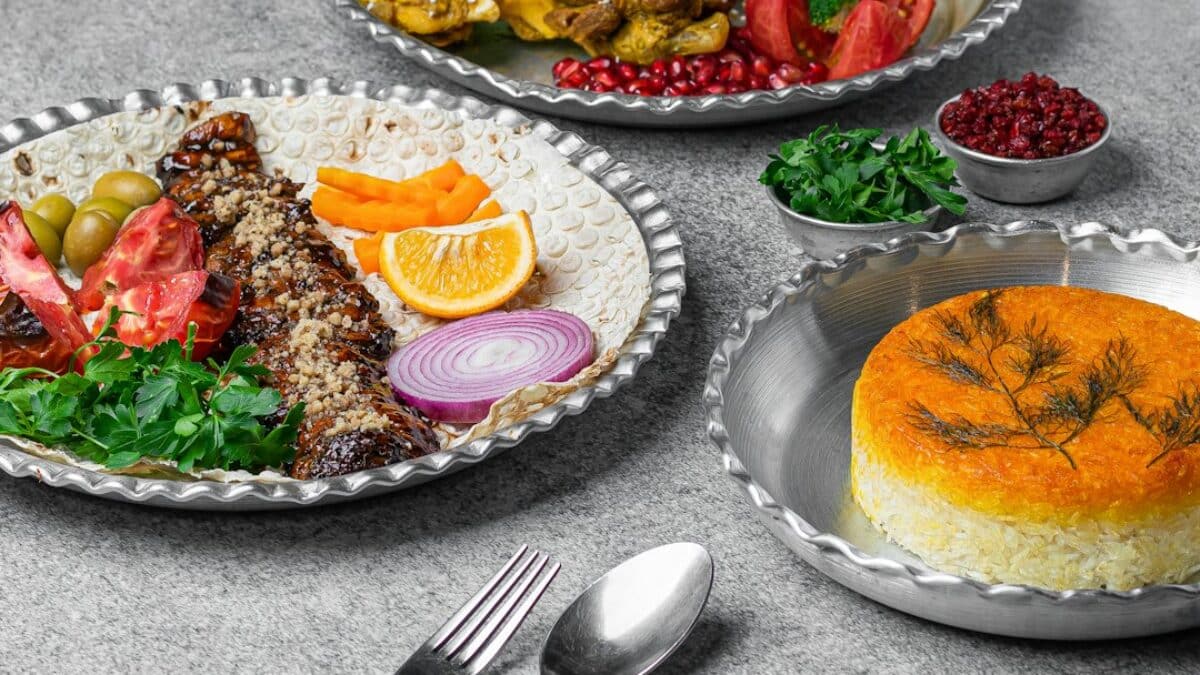Ramadan is a sacred month of fasting, prayer, and reflection for Muslims worldwide. While spiritual growth takes center stage, thoughtful meal planning can make the physical fast easier, healthier, and more spiritually rewarding. This Ultimate Ramadan Meal Planning Guide delivers battle-tested suhoor and iftar recipes, time-saving batch-cooking tips, and balanced nutrition strategies so you can focus on worship instead of last-minute kitchen stress.
Understanding Ramadan Nutrition & Fasting Science
Fasting from dawn to sunset reshapes the body’s metabolism. During the day, glycogen stores deplete and fat oxidation increases, making the quality of suhoor and iftar meals critical. Proper timing, macronutrient balance, and hydration determine whether you feel energized, sluggish, or dehydrated.
Metabolic Phases of a Fasting Day
- Fed State (0–4 h post-iftar): Blood sugar rises; prioritize complex carbs, lean protein, and healthy fats to restock liver glycogen gently.
- Early Fasted State (4–12 h): Glycogen is tapped; moderate protein plus fiber at suhoor slows digestion and prevents sugar crashes.
- Extended Fasted State (12 h–sunset): Ketone production ramps up; hydration minerals (sodium, potassium, magnesium) are key to prevent headaches and cramps.
Key Nutrient Targets for Ramadan
| Meal | Carbohydrates | Protein | Healthy Fats | Fiber | Water |
|---|---|---|---|---|---|
| Suhoor | 40–50 % (slow-digest) | 20–25 g | 15 % | 8–10 g | 500–600 ml |
| Iftar | 45 % (balanced) | 25–30 g | 20 % | 10 g | 500 ml |
Key Components of Effortless Ramadan Meal Planning
1. Master Grocery List
Stock your pantry once a week to avoid daily store runs. Divide the list into perishables and staples:
- Protein Powerhouses: Skinless chicken thighs, eggs, Greek yogurt, canned chickpeas, lentils, salmon fillets.
- Smart Carbs: Rolled oats, quinoa, brown rice, whole-wheat pita, sweet potatoes.
- Healthy Fats: Avocados, almonds, walnuts, olive oil, chia seeds.
- Hydration Helpers: Watermelon, cucumbers, citrus, coconut water, herbal teas.
- Flavor Boosters: Garlic, ginger, turmeric, fresh herbs, low-sodium stock cubes.
2. 10-Minute Suhoor Formulas
Keep mornings effortless with repeatable templates:
- Overnight Oats Base: ½ cup oats + ¾ cup milk + 1 tsp chia + toppings (berries, nuts, date syrup).
- Savory Egg Wrap: 2 eggs + spinach + feta + whole-wheat tortilla; wrap tightly, microwave 45 s.
- Protein Smoothie Pack: Pre-portion frozen fruit, Greek yogurt, and spinach in zip bags; morning-of blend with water.
3. 30-Minute Iftar Blueprints
Stage 1: Quick Hydration (3 min)
- 2 dates + 250 ml water + pinch of sea salt + squeeze of lemon.
Stage 2: Light Starter (10 min)
- Lentil-Veg Soup: Simmer pre-cooked lentils, carrots, celery, cumin, and stock; garnish with parsley.
Stage 3: Balanced Main (17 min)
- Sheet-Pan Chicken & Veg: Bake marinated chicken, broccoli, and bell peppers at 200 °C while soup simmers.
Benefits and Importance of Structured Ramadan Meals
Strategic meal planning does more than save time; it safeguards physical health and spiritual focus.
- Stable Energy: Balanced macros prevent the 4 p.m. energy crash that distracts from ibadah.
- Better Sleep: Lighter, earlier iftars reduce acid reflux and nighttime thirst.
- Weight Management: Portion-controlled meals mitigate post-Ramadan weight gain.
- Community Connection: Batch-cooked staples make hosting iftar for neighbors frictionless, multiplying rewards.
Practical Applications: Weekly Meal Plans & Recipes
7-Day Suhoor Menu
| Day | Recipe | Prep Night Before | Key Nutrients |
|---|---|---|---|
| Mon | PB-Banana Overnight Oats | Combine all ingredients in jar | 15 g protein, 8 g fiber |
| Tue | Spinach-Feta Egg Muffins | Bake muffin-tin eggs | 18 g protein, low carb |
| Wed | Chia-Coconut Yogurt Parfait | Mix chia & yogurt | Omega-3, 12 g protein |
| Thu | Savory Avocado Toast + Boiled Egg | Boil eggs, mash avocado | Healthy fats, 14 g protein |
| Fri | Quinoa-Berry Smoothie Bowl | Cook quinoa, freeze fruit | Antioxidants, 10 g protein |
| Sat | Hummus & Veggie Wrap | Chop veggies | Plant protein, 9 g fiber |
| Sun | Almond-Chocolate Protein Shake | Pre-portion powders & milk | 25 g protein, indulgent |
7-Day Iftar Menu
Each dinner serves 4 and is table-ready in 30 minutes or less.
Monday – Harira & Herb-Crusted Salmon
- Harira: Tomato-lentil soup with celery, cilantro, and warm spices.
- Salmon: Coat with lemon, garlic, parsley; bake 12 min at 200 °C.
- Side: Steamed couscous with raisins and almonds.
Tuesday – Chickpea & Spinach Curry + Brown Rice
- Sauté onion, garlic, ginger in olive oil.
- Add spices (turmeric, cumin, coriander), chickpeas, tomatoes; simmer 15 min.
- Stir in spinach and coconut milk; serve over microwave-ready brown rice.
Wednesday – Grilled Chicken Shawarma Bowls
- Marinate chicken strips in yogurt, lemon, and shawarma spice overnight.
- Grill 8 min/side; layer bowls with quinoa, cucumber-tomato salad, tahini sauce.
Thursday – Stuffed Bell Peppers (Vegetarian)
Fill halved peppers with brown rice, black beans, corn, and feta; bake 20 min at 190 °C.
Friday – One-Pot Beef & Freekeh
Brown lean beef cubes; add freekeh, carrots, and broth; simmer 25 min until tender.
Saturday – Shrimp Pad Thai Zoodles
Sauté shrimp with garlic; toss spiralized zucchini in tamarind sauce, peanuts, and lime.
Sunday – Leftover Remix Platter
Combine remaining grains, proteins, and salads into mezze-style bowls with hummus and olives—zero cooking day!
Batch-Cooking & Freezer Hacks
- Sunday Prep Day: Cook 2 cups dry lentils, 3 cups brown rice, and 1 kg chicken breasts; portion into glass containers.
- Freezer Smoothie Kits: Pack fruit, spinach, and protein powder in silicone bags; blend with milk for instant suhoor.
- Double Soups: Make a triple batch of lentil soup; freeze in muffin trays for quick portions.
- Label & Date: Masking tape + marker prevents mystery meals.
Special Dietary Considerations
Diabetic-Friendly Adjustments
Replace refined carbs with low-glycemic options:
- Suhoor: Swap white rice for cauliflower rice pilaf with almonds.
- Iftar: Break fast with a small apple + 1 Tbsp peanut butter to blunt glucose spikes.
High-Protein Goals for Athletes
Aim for 1.6 g protein per kg body weight:
- Include 30 g whey protein shake at iftar and pre-bed cottage cheese.
- Add grilled chicken strips to every salad and wrap.
Gluten-Free Swaps
- Use quinoa or millet instead of couscous.
- Replace soy sauce with tamari; choose certified gluten-free oats.
Frequently Asked Questions
What should I eat first when breaking my fast?
Start with 2–3 dates and a glass of water with a pinch of salt. Dates provide quick glucose and potassium, while the salt jump-starts rehydration. Wait 10–15 minutes before consuming soup or salad to prevent gastric distress.
How can I prevent feeling thirsty during the day?
- Drink 500 ml water at suhoor, then sip 250 ml more right before Fajr.
- Limit salty foods (pickles, processed meats) at suhoor.
- Include water-dense foods like cucumber and watermelon at iftar.
- Add electrolyte tablets or a homemade oral rehydration solution (1 L water, ½ tsp salt, 1 Tbsp sugar, juice of 1 orange).
Is it safe to exercise while fasting?
Yes, with modifications. Schedule light to moderate workouts 30–60 minutes before iftar so you can rehydrate immediately. Strength maintenance is feasible, but avoid high-intensity interval training (HIIT) in the final fasting hours when dehydration risk peaks.
How do I handle suhoor with small children who wake up late?
Prepare grab-and-go options the night before:
Banana-oat muffins baked in silicone cups.
























Post Comment